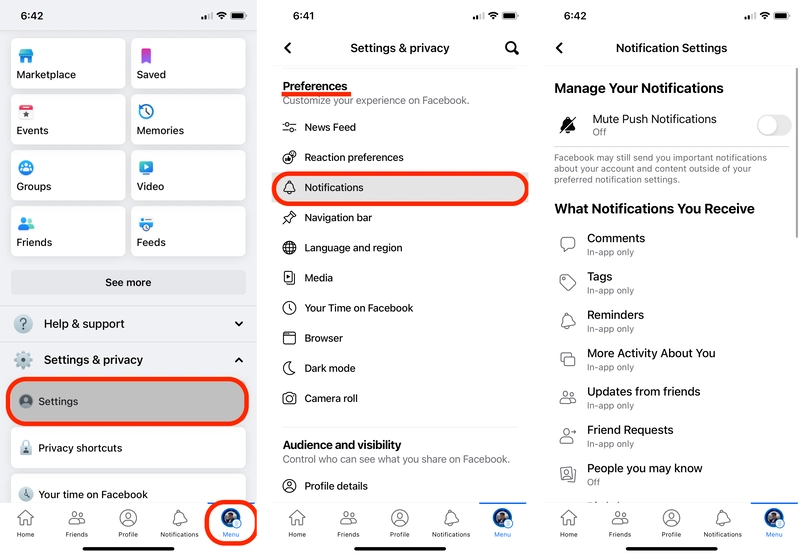📖 10 min. read
This article was co-authored by @quennebria.
You live in a time of rapid technological advancement and change. With all your enthusiasm, you're missing something important, aren't you? How do we handle ethics, privacy, and surveillance?
With Artificial lntelligence (AI), regarding to data collection, are concerns over its aggressiveness, loss of privacy, and even unintended consequences. How do we address these gray areas of AI? This is where virtue ethics comes into play.
In this article, we will dive into ethical considerations around the integration of Artificial Intelligence (AI) into our daily life, particularly with privacy issues and use of virtue ethics in human-computer interaction. A moral machine-driven future isn’t science fiction and you can be one of the people that help make it come true.
Understanding Technological Enthusiasm in the Age of Artificial Intelligence (AI)
Artificial Intelligence (AI) is becoming increasingly ingrained in our routines, yet issues, like automation, bias, and data privacy have surfaced (Biswas, 2023). An imbalance between innovation and ethical consideration will hinder us as a whole from advancing our humanity.
In the progress of AI, one must impart teamwork across the fields thriving with ethical values that adhere to this invention, like policy making and tackling issues in advance, considering the following:
- What is information?
- How is it utilized? How could a system harm communities?
- Who takes responsibility if things go awry?
By encouraging collaborations and discussions, we increase the likelihood of developing AI that promotes welfare.
These dilemmas will always remain to be the subject of continuous navigation between progress and precaution. On the other hand, we cannot let enthusiasm lead to technology development inconsiderate of ethics as it may create technologies that might do more harm than good.
Privacy Concerns and Ethical Considerations for AI
While we laid out a rather utopian approach to AI, there is a need to voice out back to reality. As tech enthusiasts who witnessed the advent of AI from two years ago as of this writing, many have begun to question its gray area of the do’s and don’ts when using various AI models.
AI has completely changed the landscape of what already was convoluted when it comes to privacy, particularly user data. The user-generated content of the World Wide Web has been leveraged out of the box wherein these are used to train AI models.
Personally when AI surfaced two years ago, the first backlash felt against AI was the creative community, particularly digital artists. An article by O'brien (2023) states that the vast majority of artists criticize AI because
- Their works being used without their permission
- Their art is used to train AI models (or so-called data scraping)
- AI Art “devalues the value of human work”
Because of this, artists and creative minds alike are much more hectic in emphasizing rights to their works, with mixed opinions about the creative landscape living with AI. This judgment towards AI goes beyond IT ethics, as it also questions its artistic ethic that art is about the hard work and emotions that were put on a canvas.
Art and Artificial Intelligence are just one among many scenarios questioned about the responsible use of AI, but a common theme arises: data scraping. AI Models in particular are trained with this method which is fed with data to be better, causing concern over the data of users in the user-generated content space of the World Wide Web (also known as Web 2.0). Not only does it concern copyright, but leaves a gray area for privacy.
Privacy and Giving Control Back to The User
As of this writing, Web 2.0 is the current iteration of the World Wide Web (Paul, 2024).
- It is a defined era of the World Wide Web mainly due to user-generated content
- With user-generated content in mind, it gave birth to centralized networking platforms such as social media
- Because the web is mostly centralized, data is viewed as a capital asset for companies
With the rise of smarter web advertisements that follow you around as you surf with the help of third-party cookies, these are data brokers-companies that’s only sole purpose is to collect and sell your data. Not only do these practices track you across the web without your consent or prior knowledge, but the user now has a unique fingerprint that can be easily identified across the web. This allows individuals or companies that capitalize on data to give you relevant advertising in exchange for your data.
In the near future, Web 3, when successful, could be the pioneer of Web 3.0 that contrasts to Web 2.0:
- Decentralization
- Data is now user-first and has all the rights and consent of the owner
- Blockchain — basically a transparent, distributed database
Reviewing Privacy Settings on Your Accounts
On a personal note, when encountering account creation on another platform or application, I always hunt down for privacy controls about my data. Additionally, I can only secure not only my data but of how private or anonymous I can be on that platform.
As a user of the internet, especially when you already signed up for an account on a platform, managing your account settings may seem like a horror for most. These are pages or screens you wouldn’t want to tinker with. In reality, they are usually straightforward to use! Sometimes, however, navigating through privacy settings may be vague and can get you easily lost.
Google and Meta’s Ad preferences are an example wherein they refer to the user’s basic information and other observed behavior like suggested interests and similar search queries
With recent laws and antitrust lawsuits that sparked in recent years concerning user privacy, particularly the General Data Protection Regulation (GDPR), companies were required to give the user a transparent overview of how their information and data is used.
Some platforms or services collect your data for a number of reasons:
- Data is used to improve the application, platform, or service
- Data is used to sell to advertisers to give you a personalized experience
- Data is/may be used to train AI models for a better experience (i.e. Grammarly AI)
If you are concerned about your privacy, you are free to review these settings either by selecting parts of your data not to be shared, completely opting out of a personalized experience, or by deleting your data from the company from which your account was made.
In short, if you’re concerned about your privacy as a user, you could either:
- Voluntarily let all of your data be collected
- Only select some of your data to be collected
- Opt-out entirely of the platform or service’s data collection
At the very least, it’s about giving control back to the user of how their data should be managed.
Virtue Ethics and Technological Enthusiasm
As tech enthusiasts, ethics, particularly IT ethics, are important to take note of every day. These are a set of moral principles and do’s-and-don’ts that one must adhere in the field of technology looking forward.
Applying Virtue Ethics to Human-Computer Interaction
Virtue ethics offers an important frame for the ethical considerations of AI. Hagendorff (2022) says about the abecedarian principles of virtue are:
- Equivalency
- Compassion
- Probity
AI systems can be developed in a way that reflects moral values and ethical norms by enforcing these ideas in their design.
Achieving this balance between invention and ethics becomes consummate as we become more habituated to AI in our daily lives. The excitement about progress has the effect that it can make one learn new effects about inventions and technology, but it can also beget a person to overlook troubles or unintended consequences. Training AI can be directed to conform to moral norms using virtue ethics.
In character.ai when a user enters a prompt that would lead to a “character” to say sensitive topics (i.e. inappropriate content), the character would refuse to reply and warns the user that the AI-generated prompt is against the platform's guidelines
Virtue ethics, the primary idea of which is to develop moral rates and positive character traits, is the main end. The characteristics of empathy, translucency, and integrity are the most important for Al. Empathy should be shown by companies and inventors who are investing in AI Technology by considering the possible negative influence that Al has. Transparency should also be espoused in systems where individuals can understand how they operate and the reasons for their opinions.
Ethics Hidden in Plain Sight
One of these ethics is a tech enthusiast’s duty to educate our less-tech-oriented peers and loved ones who are trying to keep up with the jargon of today’s technology in a friendly manner, not in a manner in which we assume that they would or assume to know.
When looking back at privacy, it’s not just about privacy to the user’s data, but the user itself. Giving back control to the user is also their means of privacy and consent, which was previously mentioned. One example is the user’s freedom to change their settings that do not necessarily default to the application’s preference.
Buried underneath an obscured level of menus that’s not entirely “social media” friendly, Facebook has settings, for example, for controlling how notifications are sent through your device, e-mail, or SMS
By default, every user on Facebook will have notifications sent through your device and e-mail, but we have the freedom to change it to our preference and liking with these granular settings. Personally, I changed these settings so that notifications would only happen inside the app. Knowing this paradigm, we may consider the following:
- Notification preferences
- Email subscriptions
- Optional data sharing (to the platform)
- Any (Optional) checkbox that you checked thinking it’s necessary
Shedding some light that we change settings on this centralized platform is a gesture of “bringing back control to the user”.
An email thread, a registration form with an optional checkbox, and a cookie popup asking the user if they accept all cookies or review if the user denies cookies
- It is not all the time we have to agree or check an option or action
- If you are literate enough and see that you have the right not to, you can always leave that checkbox unchecked
- If the platform provides it, you have the right to unsubscribe to a mailing list or change notification preferences that are flooding your email inbox
When you are tech literate enough to scour through every “Settings” page of any application or platform or read carefully if you “Reject all cookies” on a webpage, you will feel that you have regained your privacy and control as a user.
Conclusion
With technology having rapid and exponential progress, being enthusiastic about it sometimes lets us forget about consideration to be ethical and human-friendly without infringing one’s rights, especially when it comes to the user-generated content of the World Wide Web. With AI one of the rapidly developing technologies of the decade, we should also develop responsible technologies—empathy, transparency and responsibility around Al will help us keep our humanness while bringing technology into our lives.
As tech enthusiasts, we should be happy and responsible advocates of Artificial Intelligence and remember that you have every right and control when it comes to your data and privacy!
References
- https://link.springer.com/article/10.1007/s13347-022-00553-z
- https://www.linkedin.com/pulse/impacts-ai-robotics-automation-data-privacy-laws-adhere-biswas
- https://www.computer.org/publications/tech-news/trends/artists-mad-at-ai
- https://www.techtarget.com/searchcio/tip/Top-Web-30-trends-and-predictions
- https://journals.sagepub.com/doi/10.1177/2053951718820549
- https://www.infoworld.com/article/3712021/3-visions-for-the-future-of-the-internet.html












Top comments (0)